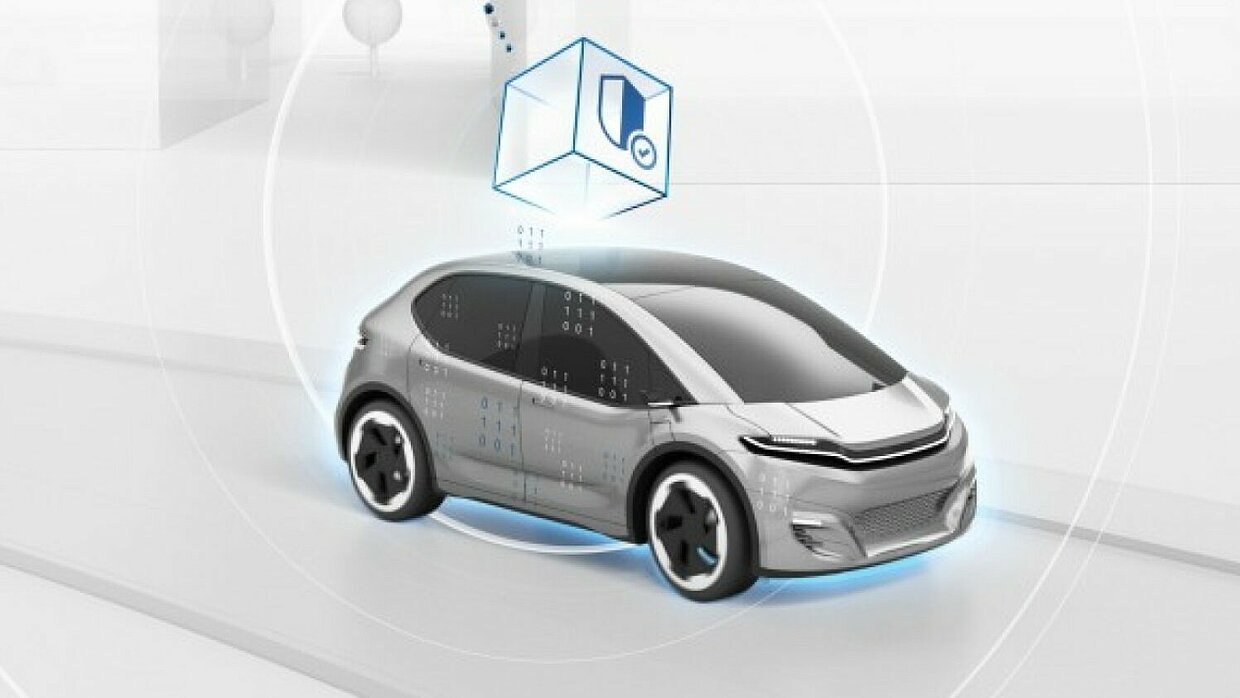
The aim of the project Software-defined Car (SofDCar) is the development and prototypical implementation of an architecture in order to enable continuous data exchange between car and backend. This allows to transfer the vehicle functionalities over the entire lifecycle.

Nowadays more than 100 control units can be installed in current cars. Thehigh and rising complexity of electric and electronic systems as well as their architecture will continue to grow in the future and therefore it is necessary to keep these systems in control. Only this way it is possible to safely update and backup the vehicle functionality data over the entire lifecycle of a car at any time for up to twenty years.
A set of rules enabling a smooth cooperation between the different electronic components and systems is needed more than ever. Therefore, it is the aim of this project that all the software updates and upgrades follow well defined rules and processes. These rules and processes should be verifiable and subject to a consistent methodology for functional- and IT security. This ensures that none of the individual programmes disturb each other and run without fault. By using modern development tool chains and DevOps methods it will be possible to define all processes required for the creation and maintenance of software for the vehicle domain in a cross-companywide way. This opens new possibilities for more complex functions and safety methods, which are also required for automated driving, for example.

Part of the project is the development of an extended digital twin, meaning a virtual image of the car’s development and runtime data. The digital twin is supposed to contain data out of the car as well as the cloud, starting from production until the scrapping process. For the first time a digital twin covers the entire lifecycle of a modern car plus the domain cloud, apps, backend and development systems. In doing so, the project SofDCar goes far beyond the previous use of digital twins. It ensures that the flow of information from car data and software versions run like a red thread through all data bases and servers.
e-mobil BW supported the project SofDCar since the very early starting phase and brought project partners together, among them numerous members of the Cluster Electric Mobility Southwest. As an associated partner, e-mobil BW puts the project’s focus on knowledge transfer and provides a broad group of industry experts with access to the knowledge generated in this project. Furthermore, e-mobil BW wants to support the qualification of current and future industry experts. Based on three modules of transfer, e-mobil BW makes sure that the project insights are presented and discussed according to the specific target groups within the Cluster ESW and the Landeslotsenstelle Transformationswissen BW (Information centre for the transformation of the automotive sector in Baden-Württemberg). From this follows a great potential for follow-up projects as well as further satellite projects.
Together with each partner university involved, two project challenges will be implemented during the second and third year of the project. The companies involved in the project will act as challenge givers who will formulate a challenge for the students at the universities. The experts to be will deal with these challenges during educational courses. e-mobil BW is responsible for organising and communicating the results.
Network coordinator:
Project duration:
Project partners:
Associated partner:
The project is funded by the Federal Ministry for Economic Affairs and Energy. The project volume amounts to 83 million euros, with a share of 53% funding from the funding provider.